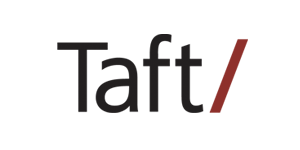- Home
- About IAGA
- Events
- Membership
- Sponsorship
|
U.S. Court of Appeals First Circuit Wire Act Ruling While most of the attention in the United States was focused on the Inauguration on January 20, 2021, the United States Court of Appeals for the First Circuit released its ruling on a case between the New Hampshire Lottery Commission and Neopollard, a lottery vendor, against the U.S. Department of Justice (“DOJ”) regarding the Interstate Wire Act of 1961. The suit was brought by New Hampshire in response to the memorandum issued by the DOJ’s Office of Legal Counsel (“OLC”) on November 2, 2018 (the “2018 Memo”), which stated that the Wire Act applied to all forms of gaming and not just sports betting. The 2018 Memo reversed a previous interpretation of the original Wire Act issued in 2011 (the “2011 Memo”). The 49-page ruling confirmed the district court’s ruling that the Wire Act only applies to a “sporting event or contest.” In light of today’s other activities, which largely surrounded the onboarding of a new administration that will push to reinstitute many Obama Era policies, this further accentuates the problems with the 2018 Memo and the stance issued by the Department of Justice in 2018. As this case has progressed over the last couple of years, several states have joined New Hampshire in their case against the DOJ. A change in ruling could have affected not only online gaming that currently operates in a handful of states, but most significantly lottery states, including nearly every state in the Union. This could have affected significant revenue sources, either for states that have seen an increase in online gaming revenue through the SARS-CoV-2 pandemic with the loss of lottery revenue, or for major multi-state jackpots such as Mega Millions and Powerball that support education and other services in numerous states. There are several aspects of the opinion that are key to the Circuit Court’s ruling but largely focuses on 18 U.S.C. § 1084(a) that reads: Whoever being engaged in the business of betting or wagering knowingly uses a wire communication facility for the transmission in interstate or foreign commerce of bets or wagers or information assisting in the placing of bets or wagers on any sporting event or contest, or for the transmission of a wire communication which entitles the recipient to receive money or credit as a result of bets or wagers, or for information assisting in the placing of bets or wagers, shall be fined under this title or imprisoned not more than two years, or both. There are multiple findings in the latest ruling, but as Global Market Advisors has stated on multiple occasions, both of these interpretations (2011 & 2018) have argued over prepositional phrases, punctuation, qualifiers, and past participials. As the ruling highlights: The parties' disagreement trains on how broadly to apply the prepositional phrase "on any sporting event or contest" that appears at the end of Clause One. The government argues that the phrase qualifies only the second use of "bets or wagers" in Clause One. The plaintiffs contend that the phrase qualifies both uses of "bets or wagers" in Clause One, and that the term "bets or wagers" as used in Clause Two is shorthand for that qualified meaning in Clause One. The Circuit Court lays out the arguments made by both parties in their briefs regarding the case, but the ruling concludes with the following statement as part of its analysis: The legislative history provides further support for our judgment that Congress likely did not intend the strange results inherent in the government's reading. In fact, the legislative history contains strong indications that Congress did indeed train its efforts solely on sports gambling. The statute as originally presented to Congress plainly aimed only at sports gambling. The language then contained only one clause, and it used commas to clearly indicate its focus on sports gambling. In conclusion, the Court’s analysis is clear in upholding the District Court’s previous decision as it relates to the interpretation of § 1084(a) of the Wire Act: We come to the end of our analysis. The text of the Wire Act is not so clear as to dictate in favor of either party's view. The government's reading of the statute, however, would most certainly create an odd and unharmonious piece of criminal legislation. Neither common sense nor the legislative history suggests that Congress likely intended such a result. Like the Fifth Circuit, and the district court in this case, we therefore hold that the prohibitions of section 1084(a) apply only to the interstate transmission of wire communications related to any "sporting event or contest." POTENTIAL NEXT STEPS to the Obama Administration interpretation, or pursue its own interpretation of the Act. Today’s decision provides additional cover for the majority of the industry that supported, and relied on, the 2011 Memo as the status quo. Questions remain on how strong of a push will be made by the Committee to Stop Internet Gaming going forward with the change in administrations, as well as a change in focus by the group’s largest funder. GMA believes that most of these efforts will cease going forward. As stated in previous research briefs issued in January and June 2019, Global Market Advisors believes that this issue should not be governed by executive order or interpretation through the various memos. Both the Obama and Trump Administrations were flawed in using this method to govern through the Department of Justice. The issue would be best served by Congress moving to modernize the 60-year-old Wire Act to clarify the Act’s policy and no longer leave this to either of the other two branches of government. The courts continued to do their part this week. As the Founding Fathers originally designed the three branches of government, the legislative branch is designed to make the laws, the executive branch to enforce the laws, and the judicial branch to evaluate and interpret the laws. The issue of the Wire Act is one example of many where the roles of the branches have been blurred due to inaction and friction among the branches of the government. The gaming industry has grown well beyond its brick-and-mortar roots, including the expansion of sports betting and online gaming in the U.S., through various means at the state level. GMA continues to believe that the only federal action that should occur is related to the Wire Act, and no other legislation would be needed to regulate the industry, as it has been regulated at the state level, another level of separation of powers built within the republic and protected in the Bill of Rights. Any action beyond the direct modernization of the Wire Act would be an affront to state sovereignty and Native American tribes that have already proven to be strong regulators of gaming, individualizing it to their own unique environments. The only federal intervention into the process should be to deal with the illegal operators and providing the necessary tools to the DOJ and regulators for enforcement of the Wire Act. With all of the changes that have occurred within the last few weeks, this will likely turn the page to another chapter of the Wire Act but one that should be handled by the Legislative Branch and not the Executive Branch. This probably will not be the case in the current politically divisive environment. One thing that is certain is this issue will likely get the attention of the current administration that intends to reverse many courses of action from the previous four years, as proven in the first 17 executive orders executed on the afternoon of January 20th. While the answers will instead likely come from the Department of Justice, which will likely continue to kick the proverbial can down the proverbial road, the real solution lies in the halls of Congress. |





















